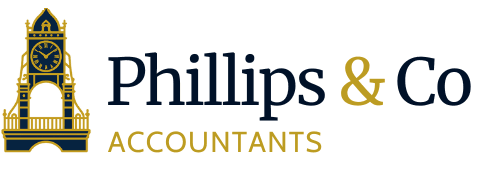Author: Phillips & Co Accountants, Chester
Date: 30 September, 2025
As Accountants in Chester, we’re often asked: “I’m on PAYE but earn on the side — do I need to file Self Assessment?” Often, yes. If you have untaxed income, certain thresholds mean you’ll need to register and submit a return. Use the checks below to decide quickly.
When you’ll usually need to file
Side income over £1,000 (gross). The trading allowance covers up to £1,000; above that, you’ll typically register and file.
Property income over £1,000 (gross). A property allowance can cover very small amounts; over £1,000 usually means filing (including short-lets/Airbnb).
Dividends or savings interest that can’t be fully collected via PAYE (e.g., larger dividend totals).
Capital gains (shares, crypto, property) where CGT is due.
Partnership income (you’re a partner), or you’re within the High Income Child Benefit Charge.
Quick examples
You made £1,600 delivering at weekends and spent £300 on costs. Turnover > £1,000 → you’ll normally file (and be taxed on £1,300 profit).
You earned £900 from craft sales and had £200 costs. You can usually use the £1,000 trading allowance (no filing if there’s no other trigger). If you’d rather claim actual expenses, you’d register and file.
You rent a spare room via short-lets for £1,400 gross. Over the £1,000 property allowance → you’ll usually file (or consider Rent-a-Room if eligible).
When you might not need to file
Your side-income turnover is £1,000 or less and you use the trading allowance, with no other filing triggers.
Your property income is £1,000 or less and you use the property allowance, with no other filing triggers.
If you prefer to claim actual expenses (because your costs are high), you’ll usually file even if income is modest.
Quick self-check for side hustlers
You pay tax on profit, not turnover.
Keep basic records: invoices, bank statements, platform/processing fees, mileage, home-working %.
Use a separate bank account for side income — it keeps bookkeeping clean and reduces missed expenses.
Ring-fence 20–30% of profit for tax so January isn’t a shock.
Common myths (and the simple truth)
“PAYE means I never file.” Not always — PAYE covers your employment; untaxed side income can still require a return.
“Under £1,000 means I don’t keep records.” Keep simple records anyway; it protects you if HMRC asks questions later.
“Small dividends don’t matter.” Some can be coded in PAYE, but larger totals often require a return.
Extra pointers from Accountants Chester
Trading allowance vs expenses: you can’t use the £1,000 allowance and deduct expenses — it’s one or the other. Pick whichever gives the lower taxable amount.
Platforms & fees: selling/creator platforms and payment processors charge fees — they’re usually allowable costs. Keep the statements.
Side-hustle VAT? Most won’t need VAT, but if total UK taxable turnover across all activities goes over the registration threshold, you’ll need to register — even if your main job is PAYE.
Bottom line
If you’ve got over £1,000 of untaxed side or property income — or other triggers like dividends, gains or partnerships — assume you’ll need to file and get organised early. It’s simpler, you’ll claim the right reliefs, and you’ll avoid last-minute stress.
Call/WhatsApp today on: 01244 220 062
If you’d like expert guidance, contact Phillips & Co Accountants Chester today.
Keep More, Stress Less
Disclaimer
The information contained in this blog is for general guidance only. It does not constitute professional advice and should not be relied upon as such. Always seek tailored advice from a qualified accountant regarding your specific circumstances.
